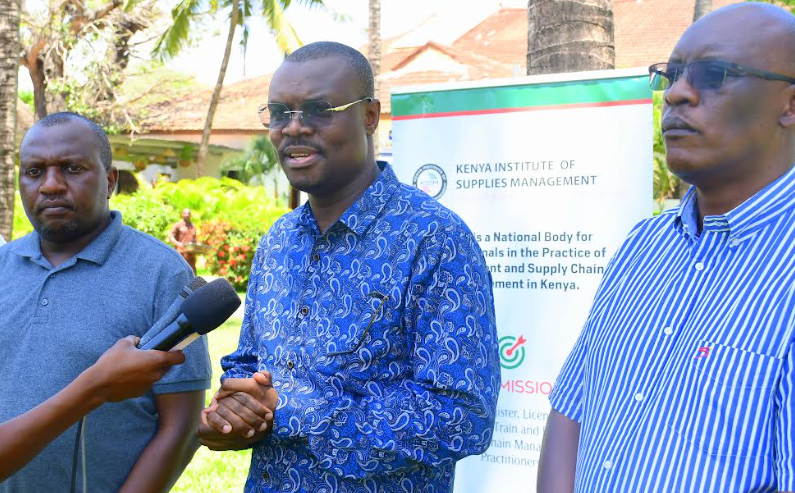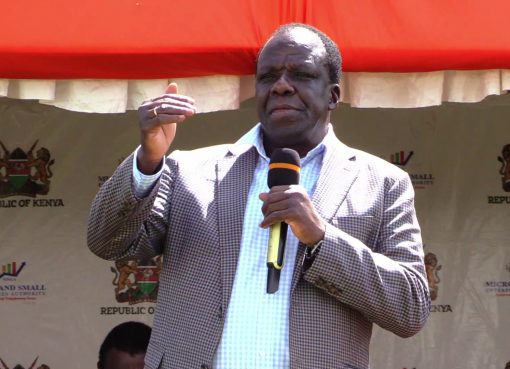The Kenya Institute of Supplies Management (KISM) and the Ethics and Anti-Corruption Commission (EACC) have entered into an elaborate corporation framework titled “Enhancing Ethics in Public Procurement” with a deliberate effort to involve the media.
This is aimed at embedding ethics and integrity in the supply chain by promoting transparency, accountability, and professionalism.
By bringing the media on board, the partnership aims to amplify public awareness and ensure broad dissemination of ethical principles, fostering a culture of integrity in public procurement.
Speaking during the opening of the joint workshop between KISM and EACC, KISM CEO, Kenneth Matiba highlighted that this collaboration underscores the critical role of ethical supply chain practices in advancing good governance and driving socio-economic development across the country.
“Through targeted training, sensitization programs, and strategic communication, the framework seeks to curb corruption, enhance public trust, and strengthen the accountability mechanisms necessary for sustainable growth of the industry,” Matiba said.
He noted that addressing matters of ethics and integrity requires close collaboration with investigative agencies to dispel the negative stereotypes often associated with procurement and supply chain professionals.
“To this end, while noting the points of confluence between EACC, KISM and the Media, we have agreed on a framework of collaboration and partnership in building the capacity of professionals to promote good governance. “Building Coalitions, Strength in Synergies, Prosperity for all,” Matiba said.
He noted that the workshop had been designed to focus on Integrity and anti-corruption efforts in Kenya, the Effect of the Anti-Corruption and Economic Crimes (Amendment) Bill, 2023 on the Public Procurement Process, Legal and regulatory framework for accountability in the supply chain Management, Ethical practices in the bidding, evaluation, and award activities in a procurement process.
Other matters to be discussed were; Ethical issues in contract administration and management, Integrity in the management of procurement records, leveraging on Technology to Enhance Integrity in Supply Mitigation and Obligations of Public & State Office
Matiba highlighted that the anticipated outcome of the training is to cultivate a professional culture that promotes fairness, transparency, accountability, and responsible management of public resources.
The CEO of Media Council of Kenya, David Omoyo, noted that the workshop is part of a continuation of a partnership they have in strengthening the supply chain management, especially the communication functions.
“Challenges in media relations and lack of active disclosure of information, make it look like supply chain management and procurement is a secretive process so failing to proactively disclose information, we have a negative perception out there,” Omoyo said.
He noted that equipping procurement professionals with communication and media skills and fostering pen channels for proactive information sharing, can transform how the sector is perceived and reported.
He urged them to communicate freely and to proactively provide information so that the media can disclose information not only when interrogation processes are going on or negative stories but also proactively, being able to understand what processes take place, and how linear or nonlinear a procurement process can be.
He noted that in most cases, this stereotype and negative stories affect the people who work in supply chain management either by causing them to fail to communicate freely or by not knowing what to disclose.
“By creating an easy communication strategy from the supply chain process, the media can be able to know what takes place and the information shared out there will be accurate,” he concluded.
By Fatma Said





